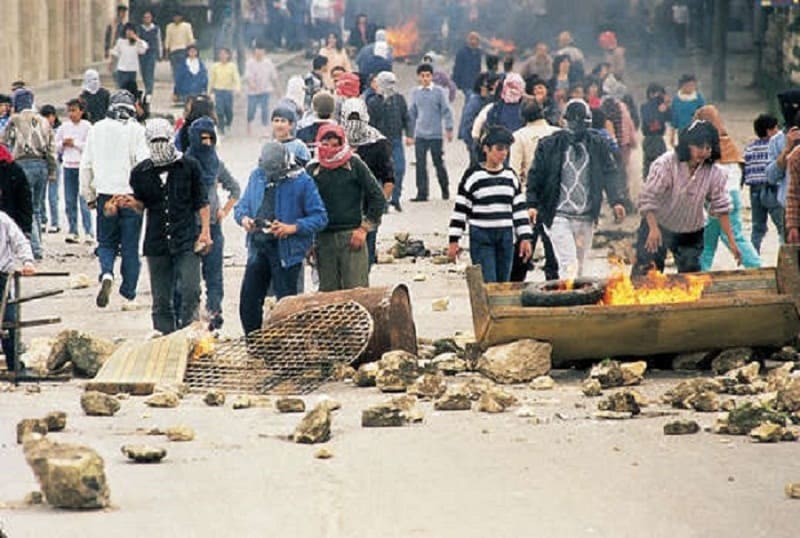The First Intifada began in December 1987 and was a pivotal event in the Israeli-Palestinian conflict. Lasting until the early 1990s, this Palestinian uprising marked a significant turning point in the struggle for self-determination, human rights, and the end of Israeli occupation. The term “Intifada” itself means “shaking off” in Arabic and conveys the spirit of resistance and resilience.
The Wars of the State of Israel
Origins of the First Intifada
The roots of the First Intifada can be traced to decades of Palestinian discontent and frustration under Israeli occupation. Several key factors contributed to its outbreak:
The Second Intifada
Long-standing Occupation
Palestinians in the West Bank and Gaza Strip have lived under Israeli military occupation since the 1967 Six-Day War. This led to increasing resentment as Palestinians endured restrictions on their daily lives and faced challenges to their basic rights.
Economic difficulties and unemployment rates were high in the occupied territories, leading to frustration and a desire for change. The failure of diplomatic efforts and the stagnation of the peace process left many Palestinians disillusioned. Incidents of Israeli aggression, such as the killing of four Palestinian laborers in a traffic accident in Gaza in December 1987, catalyzed the uprising.
Hamas
Characteristics of the First Intifada
The First Intifada was characterized by its grassroots nature, with spontaneous and decentralized Palestinian actions: Palestinians engaged in civil disobedience, including strikes, boycotts, and violent protests. Young Palestinians played a central role in the Intifada, often called the “Children of the Stones” for using rocks and slingshots in clashes with Israeli forces.
The PLO

Credit: Abarrategi, CC BY-SA 4.0, via Wikimedia Commons.
International Attention
The Intifada garnered significant international attention and support for the Palestinian cause, putting pressure on Israel to address the situation. Israel’s response to the uprising included curfews, closures, and military force, resulting in casualties. The First Intifada had far-reaching consequences:
It pushed the Israeli government and international community to acknowledge the need for political solutions, leading to the Madrid Conference 1991 and subsequent peace negotiations.
Palestinian Identity
The Intifada fostered a sense of national identity and unity among Palestinians and solidified their demand for self-determination. The Palestinian leadership adopted diplomacy and negotiations to achieve their goals alongside grassroots activism. The uprising garnered international sympathy and support for the Palestinian cause.
Israeli-Palestinian Conflict
Conclusion
The First Intifada remains a pivotal chapter in the Israeli-Palestinian conflict. It exemplified the determination of Palestinians to assert their rights and paved the way for political and diplomatic efforts to address the conflict. While the road to peace remains challenging, the First Intifada’s legacy endures, underscoring the power of violent resistance and the resilience of those striving for justice and self-determination. For more about the matter, you can read about it on Wikipedia!

